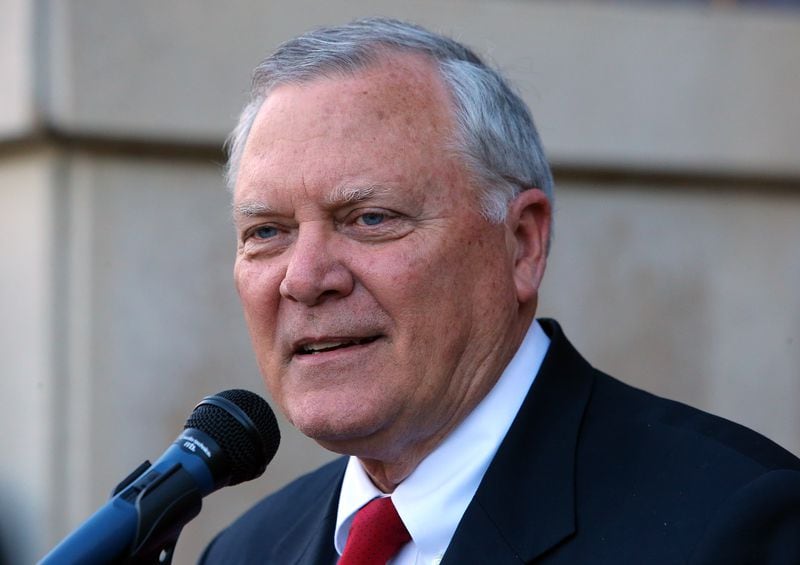When I asked a teacher about the promise of a 3 percent raise from Gov. Nathan Deal in his state of the state speech, she described it as a "bribe" so she and her colleagues would be mollified and accept his push for merit pay.
Credit: Maureen Downey
Credit: Maureen Downey
Not happening, she said. The raise is long overdue and teachers will be grateful, she said, but they were not going to stop fighting the governor on linking student scores on the yet unproven Milestones tests to influence and set teacher pay.
While avoiding any specific mention of his controversial performance pay idea -- even the Republican House Speaker has come out against it-- Deal referenced his intentions to consider using student performance to evaluate teachers. He said:
I fully understand that there are many factors that impact test scores and graduation rates, and many of these are not within the control of our teachers. A good parent that is dedicated to seeing his or her child succeed in school is the best ally a teacher can have.
My AJC colleague James Salzer has a front page story today on the 3 percent teacher raise that Deal has included in his budget proposal:
"With the additional funding this year, furloughs should be a thing of the past, and teachers should receive that 3 percent pay raise, " Deal said.
In his address, the governor expressed appreciation for teachers and state employees. But he also said teachers shouldn't be insulted by some of the changes --- such as merit pay for educators --- that are being proposed.
Since the Great Recession, employees and teachers have gotten little in the way of state-funded raises. Many saw their pay decline because the state and school districts furloughed staffers, meaning they had to take days off without pay.
While Deal included relatively small amounts of money in agency and district budgets for raises last year, some systems said they used the money to add back school days or eliminate furloughs left over from the recession.
About the Author







